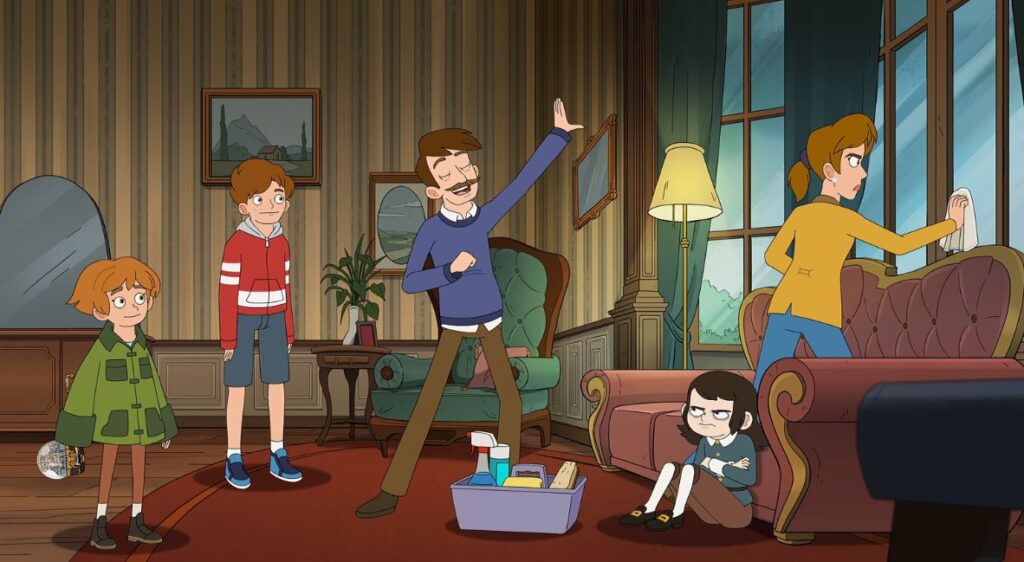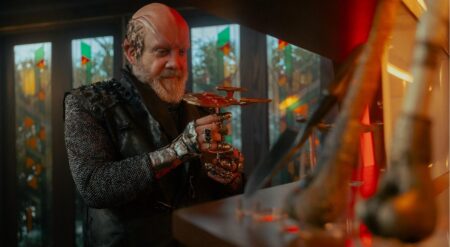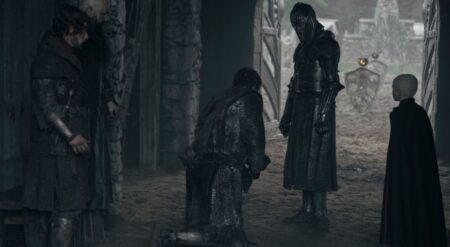The latest animated series from Netflix, Haunted Hotel, enters the field of adult animation with a supernatural horror-comedy twist. Created by Matt Roller (Rick and Morty), the series centers on Katherine (Eliza Coupe) a single mother of two who inherits the Undervale Hotel after the death of her brother, Nathan (Will Forte.) Katherine’s children, Ben and Ester, voiced by Skyler Gisondo and Natalie Palmides, help their mother run the hotel while getting into their misadventures.
The Haunted Hotel’s ensemble is rounded out with Abaddon, a mischievous demon voiced by Jimmi Simpson, who has been trapped in a young boy’s body since the 1700s. If inheriting the hotel and living with her ghost brother and demon wasn’t enough, Katherine and her kids must also deal with a packed house full of eccentric ghouls who further complicate her efforts to turn the haunted property into a successful hotel business.
The overall tone of Haunted Hotel is firmly comedic, though it makes generous use of horror tropes to fuel its humor. Instead of going for genuine horror and a huge scare factor, the series leans heavily into familiar genre conventions like body snatchers, zombies, ghost hunters, demon possessions, and even tongue-in-cheek riffs on slasher “rules” like the virgin-survival trope.
Haunted Hotel establishes a playful, horror-comedy tone.
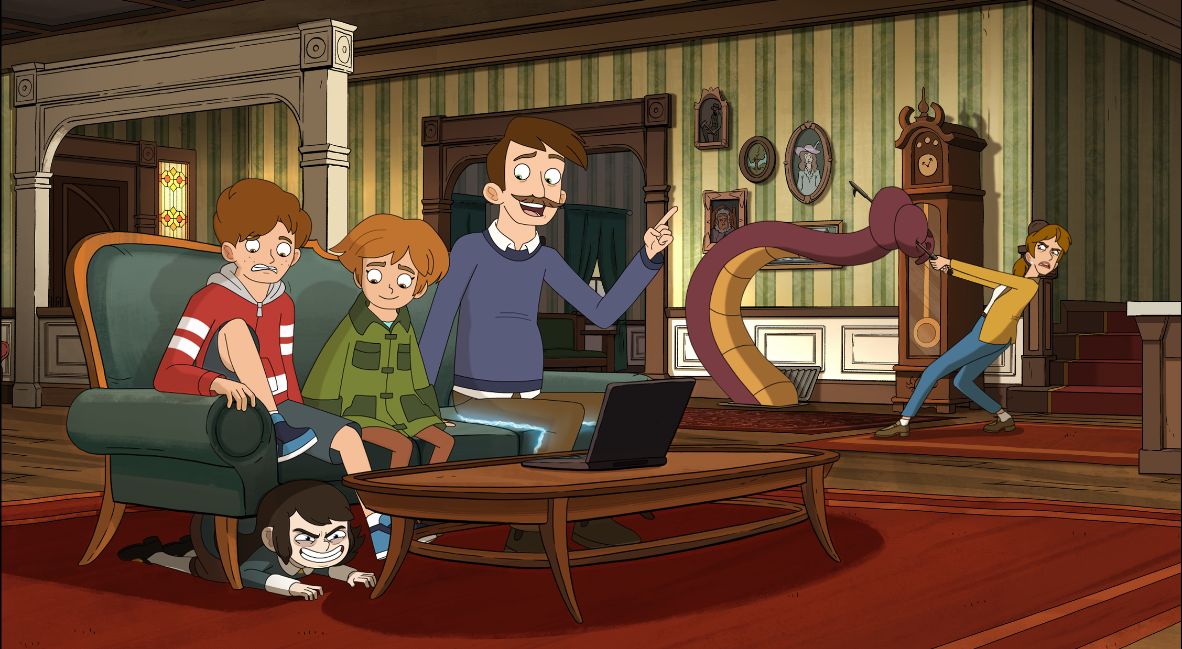
These nods to the horror elements and tropes help establish the show as a playful homage to the genre rather than a straight parody. This helps keep the energy lighter even when the visuals dip into violence, gore, and blood. Haunted Hotel is a series designed for adult audiences, and its use of horror themes comes from a place of reverence and humor rather than terror.
Structurally, Haunted Hotel goes for a monster-of-the-week format, with each episode presenting a new supernatural force potentially threatening the family, their guests, and business. The episodic approach allows the show to explore a wide variety of horror situations while keeping the show’s overall tone flexible. Although it occasionally sidelines Katherine’s goal of turning the Undervale into a success, the weekly crises work well for the show’s mix of absurd comedy and thematic undercurrents.
Katherine isn’t a traditional protagonist. Instead, she functions as a more grounded anchor for the chaos around her, trying to survive in her new environment. Katherine is a recently divorced single mother doing her best to provide a home and thriving business for her family. However, there are layers to Katherine’s character.
Will Forte delivers a fantastic live-wire energy.
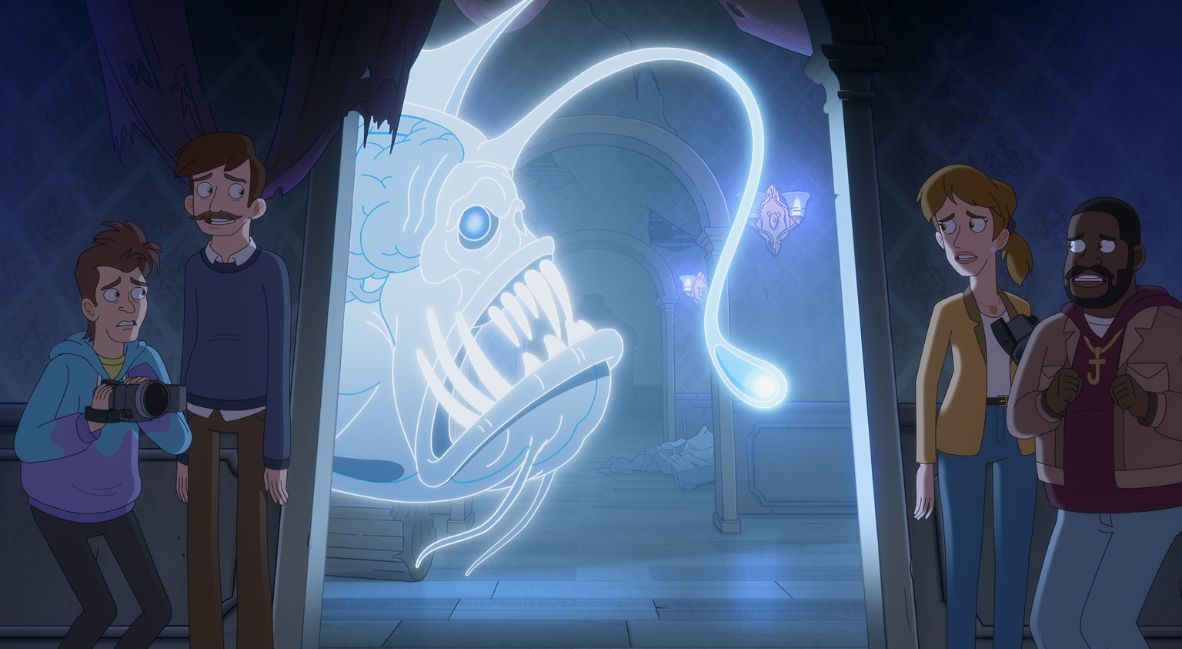
Although it seems like Katherine has accepted Nathan being a ghost as the new norm, she is still quietly wrestling with the grief and strangeness of her brother’s death. By contrast, Forte’s Nathan, brings a vibrant energy to the series. Despite his ghostly state, his cheerfulness and nearly impenetrable optimism often serve as the show’s primary source of quirky comedic relief, making it surprisingly easy to forget that he’s no longer alive sometimes.
The supporting cast also adds plenty of value and laughs to the show. Simpson heightens Abaddon’s oddly hilarious character with his theatrics and melodrama. Much of Simpson’s line delivery as Abandon is what really sells the character’s comedic timing. Palamides delivers wit, confidence, and a knack for the supernatural; Esther steals scenes with playful mischief. Meanwhile, Skyler Gisondo, who voices Ben, perfectly captures Ben’s teenage awkwardness with his supernatural misadventures, such as dating a ghost girl or being a human conduit for spirits.
The chemistry amongst the cast is one of the series’ greatest strengths, as the performances feel evenly matched and complementary. The core group’s cohesion, along with other supporting characters, helps bring the hotel’s strange community to life and elevates the humor beyond the horror genre nods.
The Netflix animated series struggles with a fragmented structure.
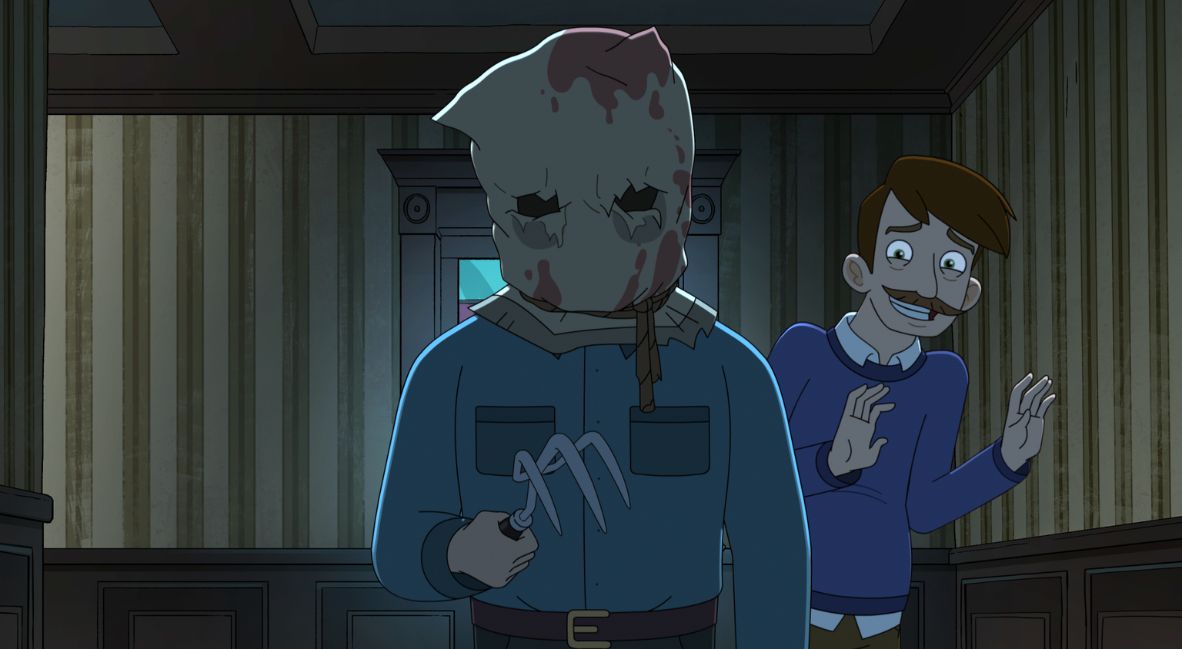
Haunted Hotel works best when it leans into the absurdity of its premise, using familiar horror archetypes as springboards for inventive, tongue-in-cheek scenarios. The humor lands consistently, thanks mainly to the cast’s sharp delivery and the writers’ willingness to embrace the weird. The monster-of-the-week format also gives the series room to experiment, ensuring that no two episodes feel alike.
However, the series does stumble at times. Some of the dialogue doesn’t always land, with certain jokes missing the mark or feeling out of place, like the touched “by a gardener” line in Episode 3, titled “Randy Slasher”. The line is not intended to be a joke, but the casual mention also feels like it wasn’t necessary to include. Additionally, while the show establishes intriguing threads of mystery early on, many of them don’t pan out or feel fully resolved by the end of the season.
Combined with the episodic structure, this can leave the season feeling fun but slightly fragmented, as though it’s holding back on bigger storytelling opportunities. Or perhaps it is simply laying some groundwork for further storytelling and exploration if there is a second season.
The writing finds moments for genuine emotion.
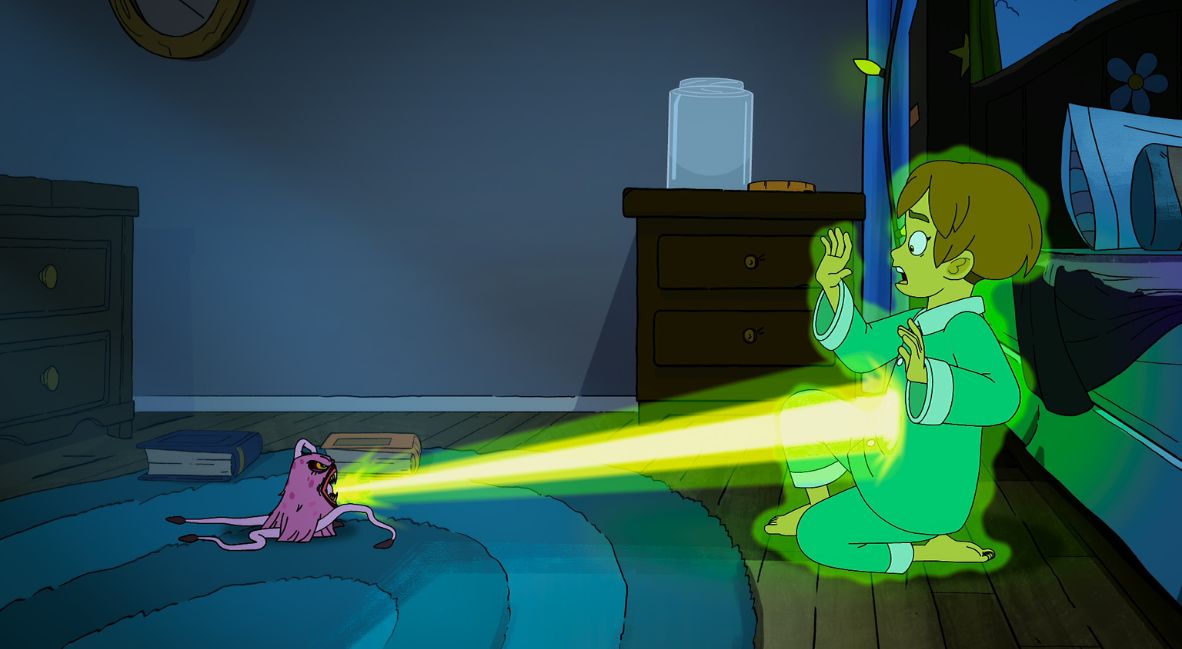
One missed opportunity for Haunted Hotel is that the season does not have an episode showing Katherine and her children arriving at the hotel and learning about Nathan’s new ghostly status. Instead, the series starts with them acclimating to Nathan and the other ghosts, without mentioning how Nathan died.
Nathan doesn’t even remember how he died initially. The series holds off on addressing this until the finale episode. That’s when Katherine finally tells him the truth, opening the show up to new, sobering territories.
We never learn what exactly led to Nathan’s death, whether it was connected to the hotel’s haunting or something more personal. It is also unclear if future seasons will expand on it. Still, the reveal is impactful because it underscores how even the most cheerful people wear masks to hide their own struggles.
A ghostly take on the family sitcom.
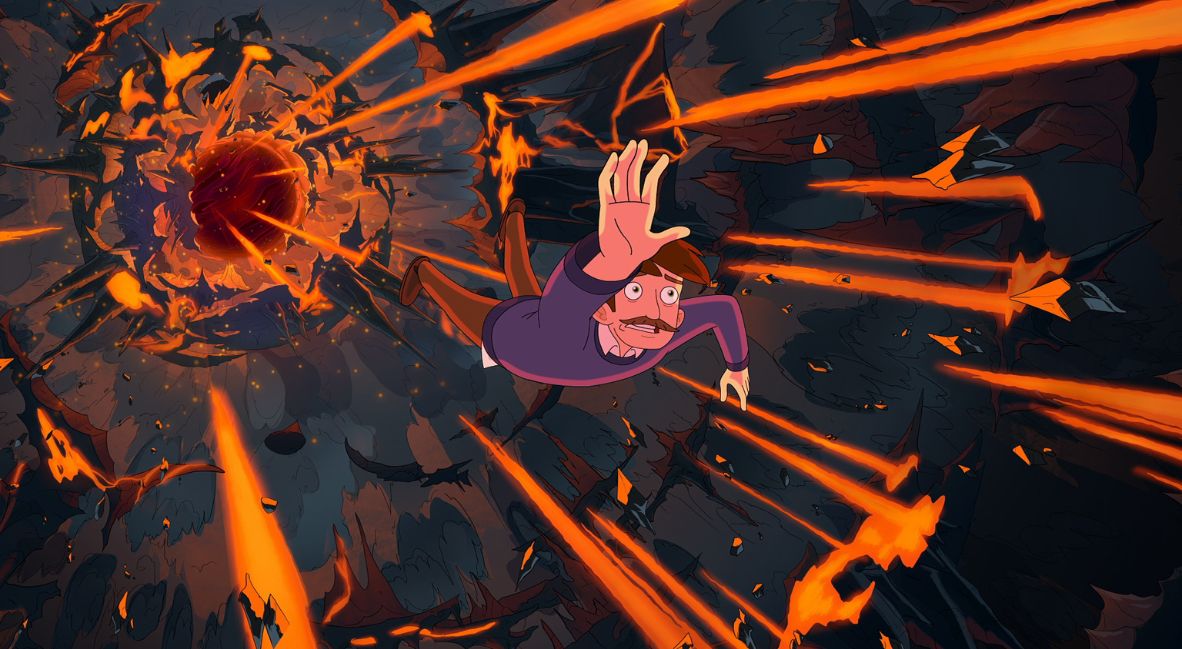
By the finale of Haunted Hotel, Katherine reassures Nathan to open up about what he was going through in life, even if he can’t remember all the details. At first, Nathan resists, insisting it wouldn’t change anything now, but Katherine gently reminds him that talking about it might still help. The scene is a surprisingly heartfelt exchange that underlines the importance of reaching out and checking in on someone. Being a ghost, Nathan gives him and his sister a second chance to reconnect, mend parts of their relationship, and confront truths they never had the opportunity to face when they were both alive.
Haunted Hotel may not reinvent the adult animation wheel, but it creates a lively space by merging horror satire with family comedy. The show’s use of genre conventions and a cast that works wonderfully off one another make it a nice addition to the Netflix lineup.
For horror and comedy fans, or anyone curious about what happens when you mix ghost stories with family sitcom energy, Haunted Hotel is worth a watch. Whether the Undervale has enough staying power for future seasons will depend on how much further it’s willing to push its characters and themes, but for now, it’s a spirited debut.
Haunted Hotel streams exclusively on Netflix September 19.
Haunted Hotel
-
Rating - 7.5/107.5/10
TL;DR
Haunted Hotel may not reinvent the adult animation wheel, but it creates a lively space by merging horror satire with family comedy. The show’s use of genre conventions and a cast that works wonderfully off one another make it a nice addition to the Netflix lineup.

